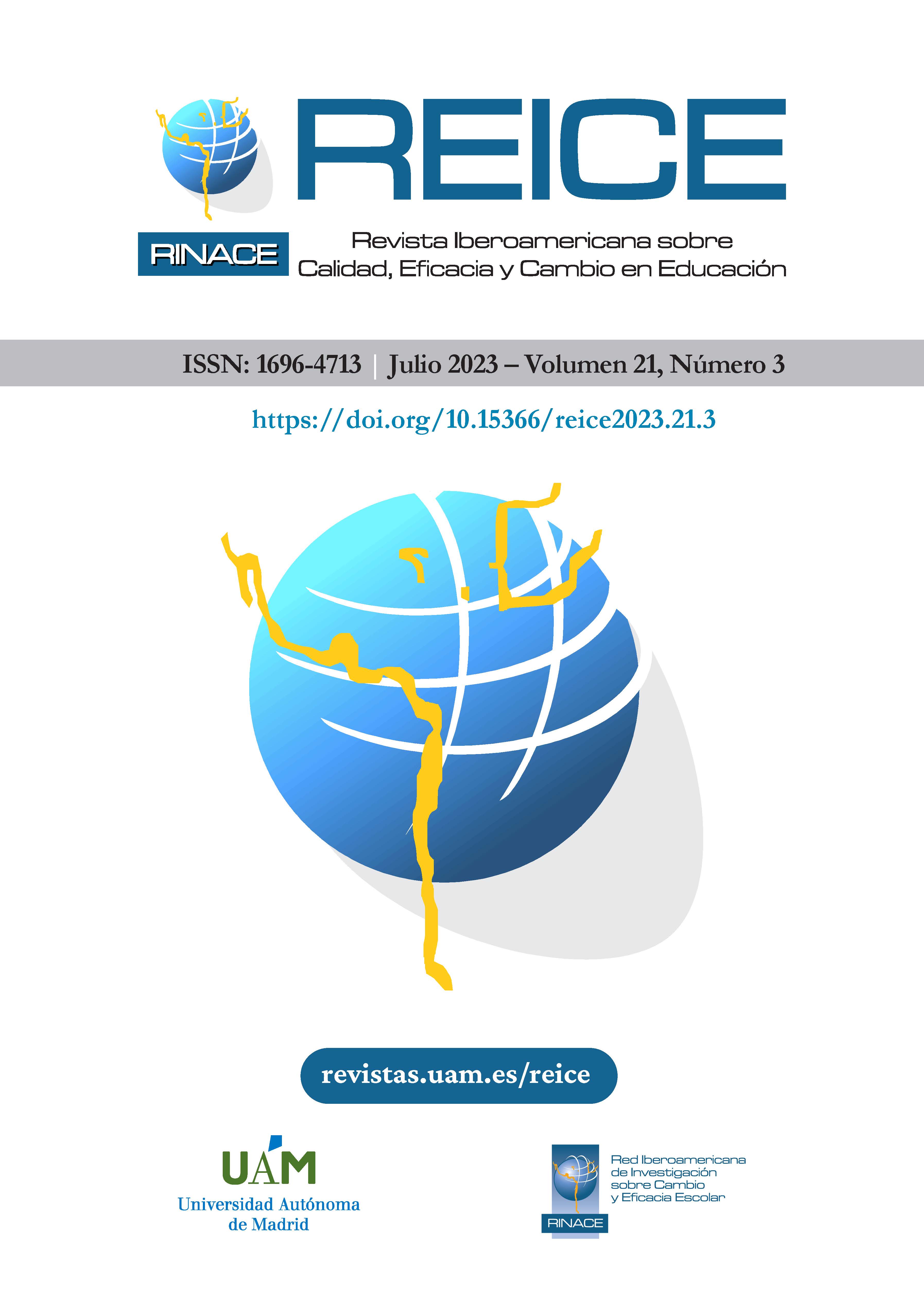Challenges for Increasing the Use of Educational Research Results
Keywords:
Information, Sciencie, Schools, University, Access
This work is licensed under a Creative Commons Attribution-NonCommercial-NoDerivatives 4.0 International License.
Abstract
The usability of educational research continues to be a challenge in international policies and agendas, and scientific forums. In education, the perceived mismatch between the interests of the research community and the needs of the teaching practice is wide. We aim to understand how this dichotomy influences the uses, topics of interest and ways of accessing the results of educational research processes, and put forward proposals that facilitate the use of evidence to improve practice. A qualitative methodology is used, with semi-structured interviews to key informants (education policy makers, principals and teachers). The research evidences is mostly used in planning and process management. The topics of interest are heterogeneous (methodologies and educational performance, mainly). Access to research results, although varied (journals, lifelong learning, on-line resources), is hampered by excessively technical language, lack of time and low perceived applicability. The conclusion is that policies to optimize the use of research involve initial and ongoing training, the promotion of collaborative dynamics involving teachers from the initial design of the research and the establishment of agreed values by the entire educational community.
Downloads
References
Avelar, M. (2016). Interview with Stephen J. Ball: Analysing his contribution to education policy research. Education Policy Analysis Archives, 24(24). https://doi.org/10.14507/epaa.24.2368
Biesta, G. (2007). Why “what works” won’t work: evidence-based practice and the democratic deficit in educational research. Educational Theory, 57(1), 1-22. https://doi.org/10.1111/j.1741-5446.2006.00241.x
Cain, T. (2016). Research utilisation and the struggle for the teacher’s soul: a narrative review. European Journal of Teacher Education, 39(5), 616-629. https://doi.org/10.1080/02619768.2016.1252912
Castells, M. (2001). La era de la Información: Economía, sociedad y cultura. Vasa.
Consejo Europeo (2002). Conclusiones de la Presidencia. http://91.194.202.12/media/848650/1991_diciembre_-_maastricht__es_.pdf
Cooper, A., Klinger, D.A., McAdie, P. (2017). What do teachers need? An exploration ofevidence-informed practice for classroom assessment in Ontario. Educational Research, 59(2), 190–208. https://doi.org/10.1080/00131881.2017.1310392
Cruz-Souza, F. (2006). Género, psicología y desarrollo rural: la construcción de nuevas identidades: las Repercusiones sociales de las mujeres en el medio rural. Ministerio de Agricultura, Pesca y Alimentación de España. https://www.mapa.gob.es/ministerio/pags/biblioteca/fondo/pdf/87506_all.pdf
Dagenais, C., Lysenko, L., Abrami, P. C., Bernard, R. M., Ramde, J., & Janosz, M. (2012). Use of research-based information by school practitioners and determinants of use: A review of empirical research. Evidence and Policy, 8(3), 285-309. https://doi.org/10.1332/174426412X654031
Decret 274/2018, de 20 de desembre, de reestructuració del Departament d'Educació. DOGC núm. 7774, 24/12/2018. https://portaldogc.gencat.cat/utilsEADOP/PDF/7774/1717793.pdf
Fischman, G. E. (2016). ¿Para qué y para quién investigamos? Estrategias de producción y de movilización del conocimiento de las facultades de educación en Norteamérica. Documento de trabajo nº 55. https://repositorio.udesa.edu.ar/jspui/bitstream/10908/11737/1/%5BP%5D%5BW%5D%20DT55-Fischman.pdf
Flynn, N. (2019). Facilitating evidence-informed practice. Teacher Development, 23(1), 64-82. https://doi.org/10.1080/13664530.2018.1505649
Ion, G., & Iucu, R. (2014). Professionals’ perceptions about the use of research in educational practice. European Journal of Higher Education, 4(4), 334-347. https://doi.org/10.1080/21568235.2014.899154
Keen, S., & Todres, L. (2006). Communicating qualitative research findings: An annotated bibliographic review of non-traditional dissemination strategies. Institute of Health and Community Studies Bournemouth University (April), 1-60. https://core.ac.uk/reader/76130
Latorre, A., Rincón Igea, D. del, & Arnal, J. (1996). Bases metodológicas de la investigación educativa. Hurtado Ediciones.
Levin, B. (2008). Thinking about knowledge mobilization. Paper prepared for an invitational symposium sponsored by the Canadian Council on Learning and the Social Sciences and Humanities Research Council of Canada, 1-32. https://www.oise.utoronto.ca/rspe/UserFiles/File/KM%20paper%20May%20Symposium%20FINAL.pdf
Levin, B. (2011). Mobilising research knowledge in education. London Review of Education, 9(1), 15–26. https://doi.org/10.1080/14748460.2011.550431
Levin, B. (2013). To Know Is Not Enough: Research Knowledge and Its Use. Review of Education, 1(1), 2-31. https://doi.org/10.1002/rev3.3001
Marshall. C., & Rossman, G. M. (1989). Designing qualitative research. Newbury Park: Sage.
Moscovici, S. (1979). El psicoanálisis, su imagen y su público. Huemul (original en 1961).
Moscovici, S. (1985). Psicología Social I. Influencia y cambio de actitudes. Individuos y grupos. Paidós.
Murillo, F. J., & Perines, H. (2017). Cómo los docentes no universitarios perciben la investigación educativa. Revista Complutense de Educación, 28(1), 81–99. https://doi.org/10.5209/rev_RCED.2017.v28.n1.48800
Patton, M. Q. (1990). Qualitative evaluation methods. Sage.
Qi, J., & Levin, B. (2013). Assessing organizational efforts to mobilize research knowledge in education. Education Policy Analysis Archives, 21(2). https://doi.org/10.14507/epaa.v21n2.2013
Riera, J. (Dir.)(2019). Reptes de l’educació a Cataluya. Anuari 2018. Fundació Bofill. https://fundaciobofill.cat/uploads/docs/5/p/7/o/3/4/9/s/3/dossier-de-premsa-anuari-2018-25-juny-1.pdf
Shulman, L. S. (2004). Teaching as community property: Essays on Higher Education. Jossey-Bass.
Stenhouse, L. (1979). Using Research means doing research. In Dahl, A. Lysne & Rand, P. (Eds) Spotlight on Educational Problems, 71-82. Oslo University Press.
Taylor S.J. & Bogdam, R. (2000). Introducción a los métodos cualitativos. Paidós.
Weiss, C. (1998). Have we learned anything new about the use of evaluation? The American Journal of Evaluation, 19(1), 21-33. https://doi.org/10.1016/s1098-2140(99)80178-7

